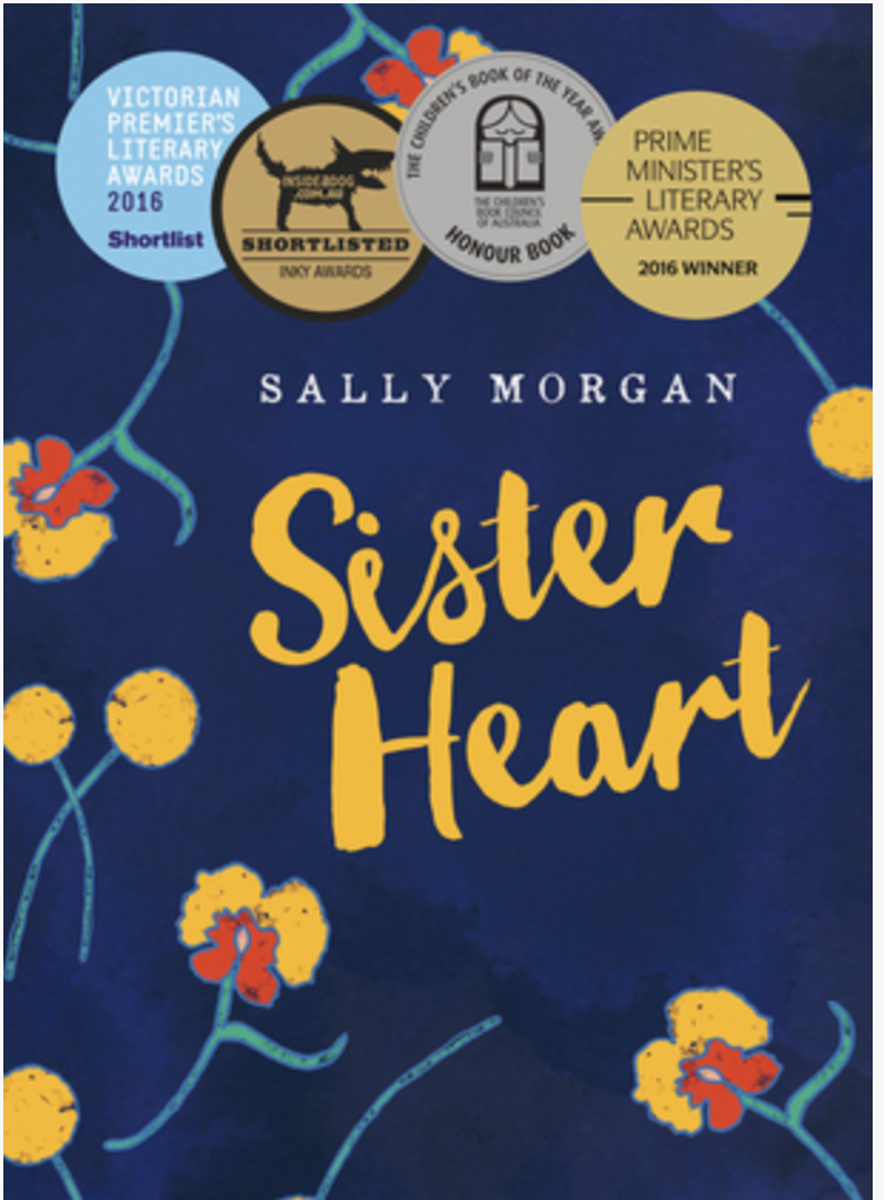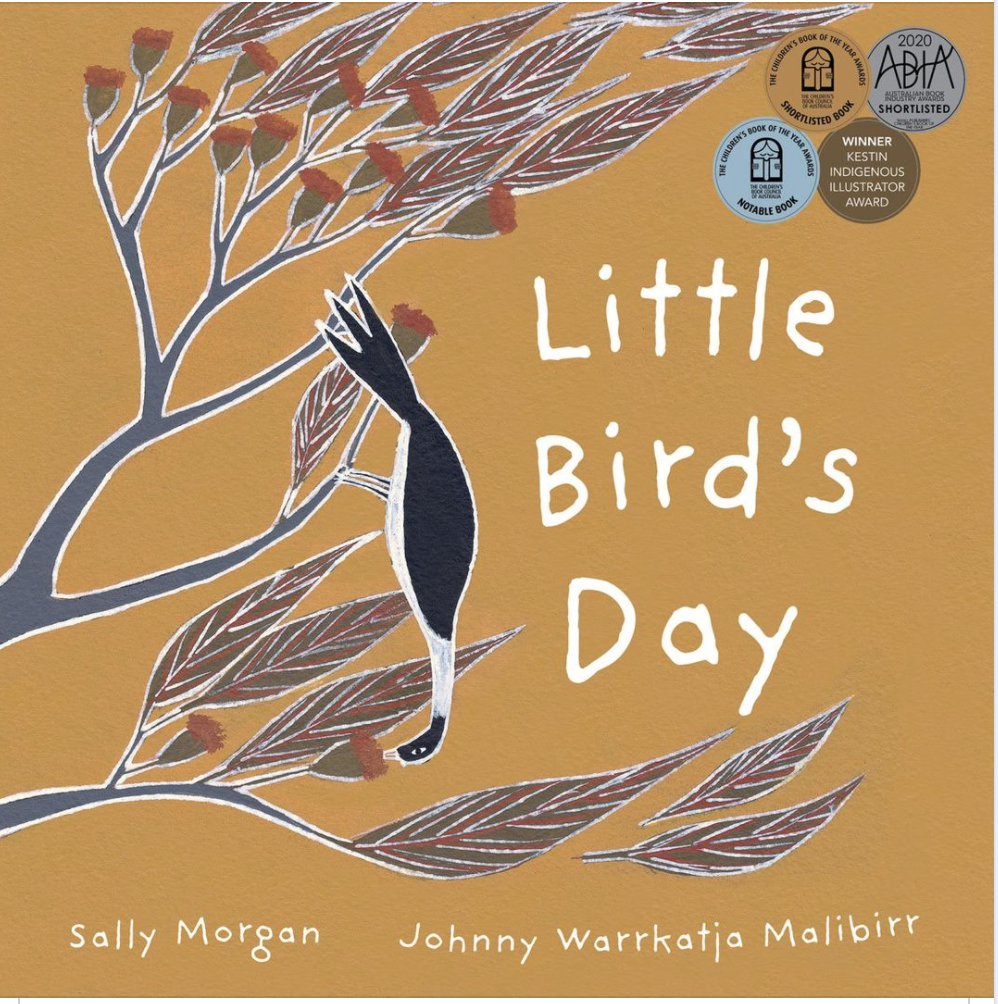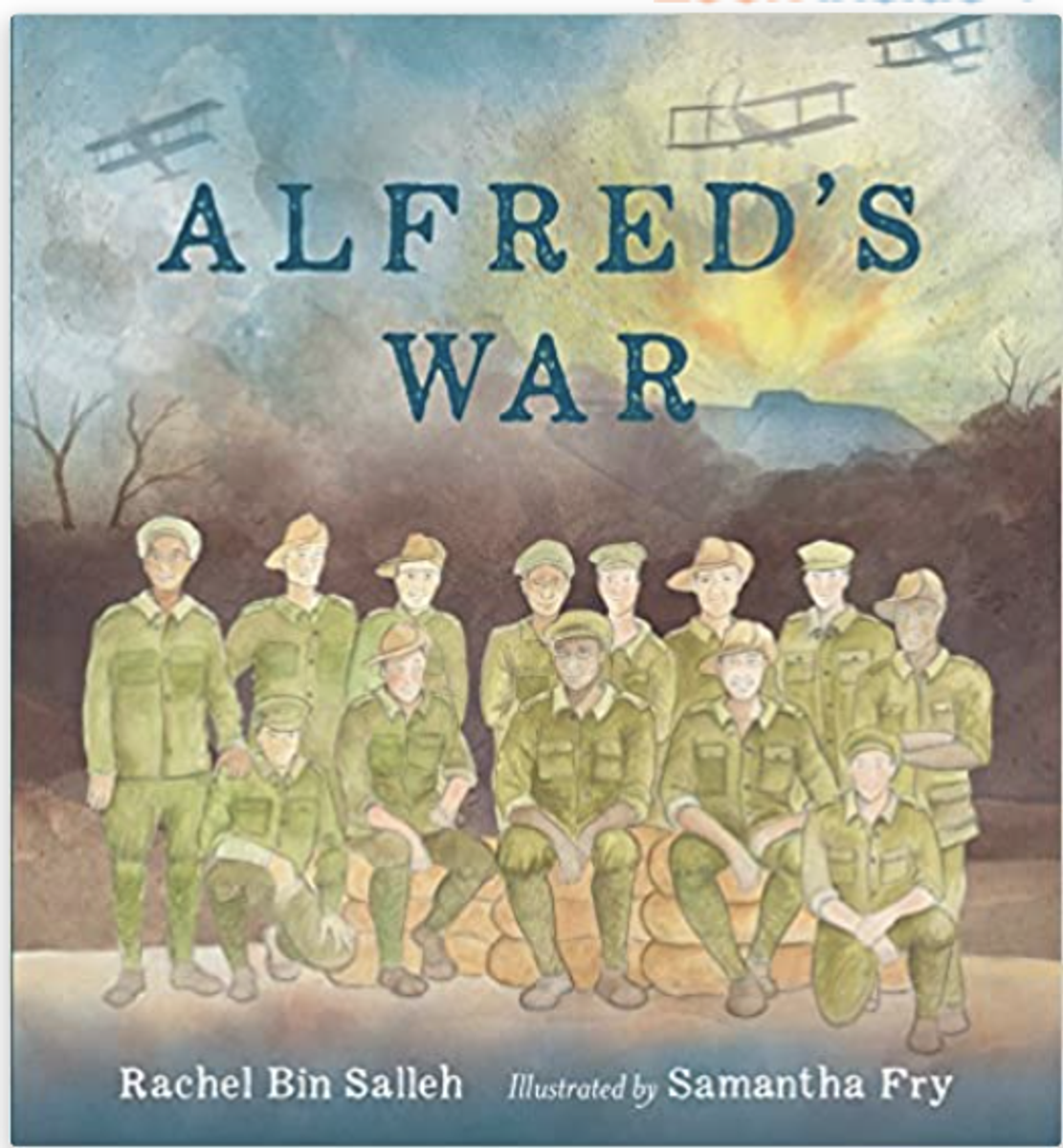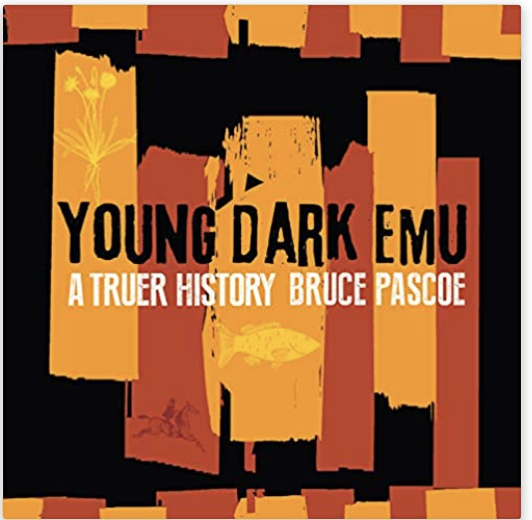Library
NAIDOC Week

Library
NAIDOC Week


A young Aboriginal girl is taken from the north of Australia and sent to an institution in the distant south. There, she slowly makes a new life for herself and, in the face of tragedy, finds strength in new friendships.
Poignantly told from the child’s perspective, Sister Heart affirms the power of family and kinship.


"Little Bird’s Day follows a day in the life of Little Bird, as she sings the world alive, feasts in the flowers, spins across the sky and bathes in the rain. It is a simple story that magnificently captures the beauty of nature, and the rhythms of daily life."
Head to the Reading Time website for the full review by Rebecca Blakeney: http://readingtime.com.au/little-birds-day/
'Little Bird's Day' written by Sally Morgan and illustrated by Johnny Warrkatja Malibirr, was Shortlisted for the 2020 CBCA Award for New Illustrator.


Alfred's War
Alfred George lived outside.
He slept in parks.
On benches.
Under big trees.
Always under the stars.
This is a powerful story that unmasks the lack of recognition given to Australian Indigenous servicemen who returned from the WWI battlelines. Alfred was just a young man when he was injured and shipped home from France. Neither honoured as a returned soldier or offered government support afforded to non-Indigenous servicemen, Alfred took up a solitary life walking the back roads - billy tied to his swag, finding work where he could. Rachel Bin Salleh's poignant narrative opens our hearts to the sacrifice and contribution that Indigenous people have made to Australia's war efforts, the true extent of which is only now being revealed. Evocative and moving illustrations by Fry bring this story to life, as does actor Richard Green's powerful telling.


WINNER OF THE EVE POWNALL AWARD 2020
Entries in this category are books which have the prime intention of documenting factual material with consideration given to imaginative presentation, interpretation, and variation of style. Ages 0-18 years.
The author says...
I am really pleased that a book about Aboriginal achievement has been recognised. I look forward to children reading it and then asking questions of the premise and going to the bibliography. You don’t really know a subject until you have investigated it. I worked with exceptional designers, artists, editors, and educators on this book and I am in awe of their work. I think the book looks fabulous. Wish I’d had it at school on King Island.
The CBCA judges say...
This book argues that for 80,000 years, Aboriginal people were living in established agricultural societies in managed landscapes, reliant on Aboriginal astronomy. Farming and food supplies were determined by Emu Dreaming, the spaces between the stars of the Milky Way, where the Spirit Emu resides. Citing colonial diaries and artworks describing organised villages and regulated food supplies, Pascoe shows how the decimation of Aboriginal people and culture ensured that after 1860 all evidence of any prior complex civilisation was eradicated. A passionate environmentalist, Pascoe advocates the cultivation of indigenous plant species, needing no extra water or pesticides, are potentially capable of meeting our carbon emission targets. Visual and textual information is produced on a traditional palette of ochre yellow, red and oranges, and charcoal black. Full-page illustrations magnify and enhance detail in the historical photographs, documents, engravings, diary entries, and sketches. This beautifully produced book presents a powerful argument that debunks the notion of terra nullius that positions Aboriginal people as nomadic hunter-gatherers through an engaging discussion accessible to primary school and young adult readers.